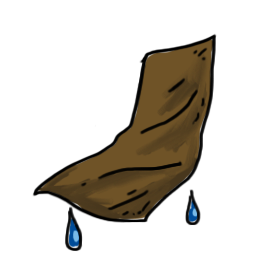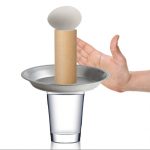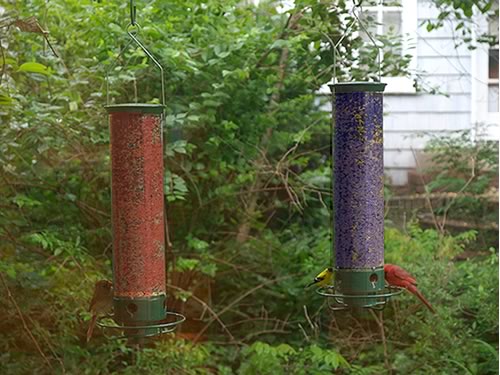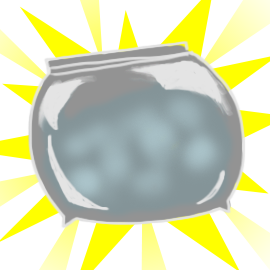You will need
* A plastic drinking cup
* Yarn or cotton string (nylon string will not work well)
* 1 paper clip
* Paper towel
* A nail
* Scissors
* Water
What to do
Cut a piece of yarn about 20 inches (40 cm) long.
Ask an adult to use the nail to carefully punch a hold in the center of the bottom of the cup.
Tie one end of the yarn to the middle of the paper clip.
Push the other end of the yarn through the hole in the cup and pull it through as shown in the picture.
Get a piece of paper towel about the size of a dollar bill, then fold it once and get it damp in the water.
Now it’s time to make some noise! Hold the cup firmly in one hand, and wrap the damp paper towel around the string near the cup. While you squeeze the string, pull down in short jerks so that the paper towel tightly slides along the string. If all goes well – you hear a chicken!
How does it work?
This is an example of how a sounding board works. The vibrations from the string would be almost silent without the cup, but when you add the cup, it spreads the vibrations and amplifies them (makes them louder.) Pianos and music boxes use wood to act as a sounding board to make the instrument louder.
MAKE IT AN EXPERIMENT
The project above is a DEMONSTRATION. To make it a true experiment, you can try to answer these questions:
1. What types of string or yarn makes the loudest sound? Which ones make the quietest?
2. Does the size of the cup affect the volume of the sound?
3. Try materials other than a paper towel to see if it affects the volume of the sound.
Science Bob









